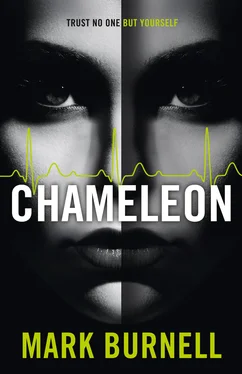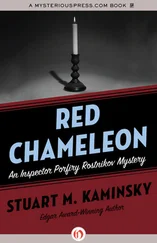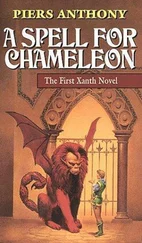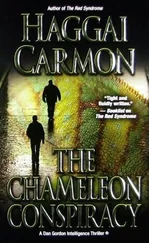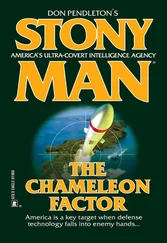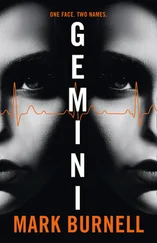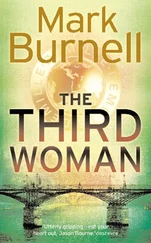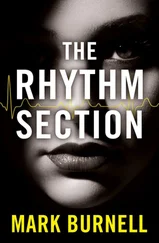
HarperCollins Publishers 1 London Bridge Street London SE1 9GF
www.harpercollins.co.uk
Copyright © Mark Burnell 2001
Mark Burnell asserts the moral right to
be identified as the author of this work
This novel is entirely a work of fiction. The names, characters and incidents portrayed in it are the work of the author’s imagination. Any resemblance to actual persons, living or dead, events or localities is entirely coincidental.
A catalogue record for this book is available from the British Library
All rights reserved under International and Pan-American Copyright Conventions. By payment of the required fees, you have been granted the nonexclusive, nontransferable right to access and read the text of this ebook on screen. No part of this text may be reproduced, transmitted, downloaded, decompiled, reverse engineered, or stored in or introduced into any information storage and retrieval system, in any form or by any means, whether electronic or mechanical, now known or hereinafter invented, without the express written permission of HarperCollins e-books.
Source ISBN: 9780008332662
Ebook Edition © SEPTEMBER 2012 ISBN 9780007372928
Version: 2019-07-24
HarperCollins Publishers has made every reasonable effort to ensure that any picture content and written content in this ebook has been included or removed in accordance with the contractual and technological constraints in operation at the time of publication.
‘ Chameleon is a Casablanca for the 21st century. Burnell writes with verve and assurance about the unsavoury realities of international terrorism. Where he really excels, however, is with his characters. Not only are his two protagonists convincingly complex and three-dimensional, but they also share a love story which is as moving as it is passionate.’
Boris Starling, author of Messiah
To Isabelle with love
The only indecipherable code in the world is a woman.
Leo Marks
Special Operations Executive
Cover
Title Page
Copyright
Praise
Dedication
Epigraph
Paris
1
2
3
4
5
6
7
8
9
10
11
12
13
14
15
16
17
18
19
20
21
22
23
24
25
26
27
28
Moscow
Acknowledgments
Keep Reading
About the Author
Also by Mark Burnell
About the Publisher
The rhythm of thewindscreen wipers was hypnotic. The rubber blades squeaked against the glass, smearing rain left and right. James Marshall leaned forward and peered at the brasserie on the other side of the street. The clock on the dashboard said it was five to two. He checked his own watch – it was marginally fast – and lit a cigarette. The caller had given him the address, the time – two o’clock – and a reminder not to be late. That had been half an hour ago at a pay-phone at the Gare du Nord.
The other phone call – the one that had caught him at home the day before yesterday – had come out of the blue. And out of the past. He’d recognized the voice instantly. A simple job that paid cash in hand; that had been the offer. Good cash, too, considering how little work was involved. He wouldn’t even have to leave Paris. At first, that had made the proposal all the more attractive.
Would he consider acting as a courier? Nothing fancy, naturally, just a fetch-and-drop, as a favour from one seasoned veteran to another.
Of course, he’d said, he’d be delighted. There had been times in the not-so-distant past when he would have considered such a job beneath him, when he would have been offended by the offer. James Marshall, the courier? The errand boy? Now, he was as grateful for the opportunity as he was for the money.
He instructed his Tunisian taxi driver to drop him on avenue de Friedland, from where he walked back to rue du Faubourg Saint Honoré. The rain was growing stronger. And colder. A lead sky darkened everything. The driver of a delivery van attempted a U-turn in front of the brasserie. The vehicle stalled. He tried the ignition twice. Nothing. He slapped the steering wheel and tried again. Still nothing. A woman in a navy Mercedes saloon held open her hands in exasperation. The van driver shrugged. The traffic staggered to a halt. Headlights sparkled, exhausts wheezed.
Marshall tried to ignore the tightness in his stomach, the tightness that suggested it would have been better to ignore the money. He wished he was home. His chilly, damp, single-room apartment in Saint Denis had rarely seemed so appealing. He crossed the street, meandering through stationary vehicles, and entered the brasserie.
Half a dozen customers congregated around a curve of copper bar. A waiter took his damp raincoat and asked if he was alone but he was already moving into the dining room. Oleg Rogachev was in the far corner, at a table by the window. Marshall recognized him from the photographs he’d studied; built like a bull, a moustache like a slug, silver hair cropped to a spike. His collars and cuffs were tight to the skin, accentuating fat hands and a fat face. He wore a charcoal silk double-breasted suit.
Rogachev looked up from his plate – pig’s trotters and spinach – and nodded towards the seat opposite. The man sitting next to him was a stranger but not a surprise; a translator, Marshall assumed. Rogachev spoke no English and had no reason to expect Marshall to speak Russian. As it happened, he’d been fluent for thirty years.
With only a slight accent, he said, ‘In Britain, we have a saying. Two’s company, three’s a crowd.’
Rogachev raised an eyebrow. ‘This is Anatoli.’
‘I hope neither of you will be offended if I ask him to leave.’
There was a frosty pause. Then Rogachev said, ‘I’ll see you back at the hotel.’
Anatoli rose from the table and left. Marshall sat down. Rogachev pushed his plate to one side, hailed a waiter and gesticulated with chubby fingers. A clean glass arrived. Rogachev waited until the wine had been poured.
‘I hope your people recognize the risk I’m taking.’
‘They do.’
‘Then I hope they’ll show their appreciation.’
‘They will. But only unofficially. They’re keen to stress this and they’re sure you’ll understand their reasons.’
Marshall looked out of the window. Gridlock, a crescendo of car horns, teeming rain. When he looked back, he noticed the small device next to Rogachev’s glass. It resembled a travel radio but had no aerial or display. The Russian felt for a switch on the side. He saw Marshall’s expression and said, ‘It jams directional radio microphones. It emits violent electronic signals, casting a five-metre protective shield. Anybody trying to listen to us will hear only static.’ He smiled slyly. ‘Even though I’m not here, it’s better to be careful.’
Hence the delay in naming the rendezvous, Marshall supposed. In the old days – in his day – these types of precaution had been routine. Naively, he’d imagined things would be different now. He wondered where Rogachev’s friends and enemies thought he was. Moscow? Yekaterinburg? Miami?
‘What have you come to offer me?’
Marshall took a sip from his glass. The red tasted bitter but the effect was welcome. ‘It’s possible that the investigation into Weaver Financial Services will come to nothing.’
Читать дальше
